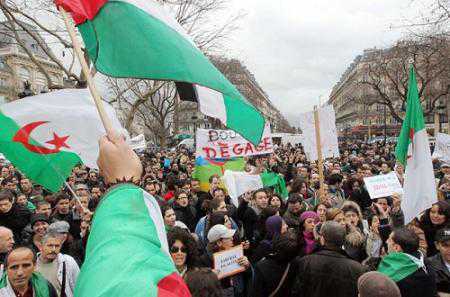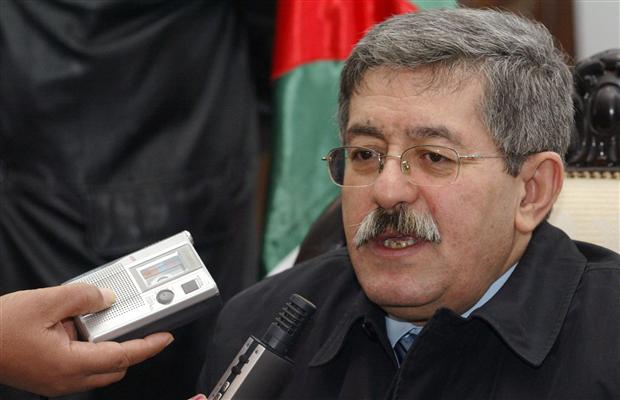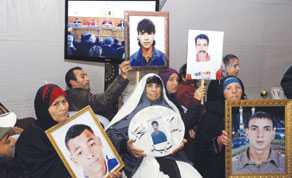Turkish Prime Minister Recep Tayyip Erdogan (R) poses with Libya’s Prime Minister Abdel Rahim al-Kib after their a press conference in Istanbul on Feb. 25. (AFP)
By The Associated Press
ANKARA / TURKEY
Turkey’s prime minister called on Libya on Saturday to disband militia forces to restore security and assume full power in the country, even as his Libyan counterpart invited Turkish companies to return to Libya to finish construction projects worth billions of dollars.
Turkish contractors were involved in 214 building projects, including hospitals, shopping malls and five-star hotels worth more than $15 billion in Libya before last year’s uprising against Muammar Qaddafi. When Turkey swiftly evacuated its 25,000 workers during the chaos, Turkish leaders assured Libya that they would return.
It is still not clear how or when that could happen even though Qaddafi has been deposed and killed.
Hundreds of armed militias, who drove Qaddafi from power, are holding the real power in Libya, and the government that took his place is largely impotent, unable to rein in fighters, rebuild decimated institutions or stop widespread corruption.
The National Transitional Council, which officially rules the country, is struggling to incorporate the militias into the military and police, while trying to get the economy back on its feet and reshape government ministries, courts and other institutions hollowed out under Qaddafi.
“The success of the transition process in Libya is proportioned with the establishment of security. I believe the Libyan administration will never concede from this,” Turkish Prime Minister Recep Tayyip Erdogan said during a joint news conference with his Libyan counterpart, Abdel Rahim al-Keib. “In this framework, it is of primary importance that the security forces be restructured and militia forces disbanded.”
Turkey’s police chief recently visited Libya to hold talks on restructuring and training the country’s police force and Erdogan said “we are taking a series of steps both in supplying equipment and training.”
Turkey seeks to lead in the region, advocating democracy in the Middle East and North Africa. And it is increasingly seen as a regional model because of its democratic system, economic development and Muslim identity.
“We see Turkey as a model,” al-Keib said. “We hope that Turkish companies come back as soon as possible.”
Al-Keib asked for help from Turkey in rebuilding Libya, training its police force as well as equipping its hospitals. Hundreds of wounded Libyans have been treated in Turkey.
Turkey, NATO’s largest Muslim member, initially balked at the idea of military action in Libya but it gradually broke long-standing ties with Qaddafi and began supporting the alliance’s airstrikes against targets linked to his regime.
The seeds of Turkey’s friendly ties with Libya were laid during a U.S. arms embargo following Turkey’s invasion of Cyprus in 1974, when Libya provided Turkey with spare parts to operate U.S.-made jets. Since then, Turkish builders have become a mainstay of foreign business in Libya, despite an influx by Chinese, Russians and others later.
The bilateral trade was $2.4 billion in favor of Turkey before the uprising and the two countries have waived travel visas to boost that trade.
Erdogan said Turkish Airlines will increase its flights to Libya from 28 to 42 to improve trade and initiate tourism between the countries.
via Libya wants Turkish companies to return.






